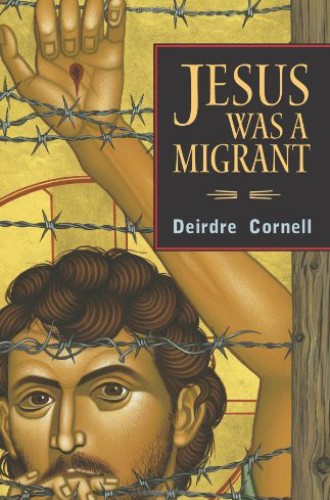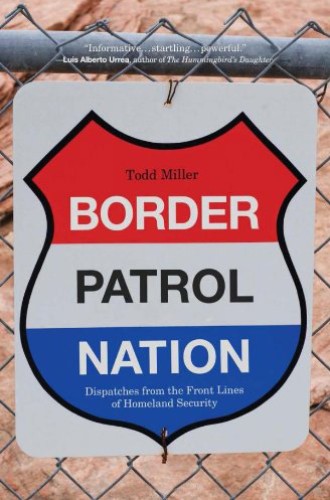Jesus Was a Migrant, by Deirdre Cornell, and Border Patrol Nation, by Todd Miller
How do immigrants shape Americans’ self-understanding? Are we citizens surrounded by terrorists and smugglers who are determined to gain a foothold among us and threaten our way of life? Or are we spiritual migrants on a journey of salvation, invited to share with and learn from companions who have experienced displacement? These are contrasting views of our national experience highlighted by Deirdre Cornell and Todd Miller in two books addressing our responses to migration. Cornell’s book is the fruit of 20 years of pastoral work with migrants and immigrants, mostly in New York State but also in Mexico. Miller is a journalist specializing in border issues who has also worked in immigration education and advocacy.
Cornell opens with attention to the historic relationship of Christian faith to human mobility, then takes readers through salvation history as a record of migrations both human and divine. She writes, “With all its hardships, human mobility serves as a paradigm of religious faith. Christians espouse belief in a Savior who embodied migration in his lifetime—and who continues to cross borders as the risen Lord. In migration, we find a source of blessing.” This insight, that migration is central to the human experience taken on and redeemed by Christ, provides the driving force for the book.
What follows could be called a travelogue of Cornell’s journey alongside the migrants to whom she has provided pastoral care. A Christmas Eve trip south to celebrate with her immigrant godchildren and their family flows into a nuanced reading of the story of the Magi and a reflection on the role of outsiders in helping us to recognize God’s work in Jesus. She explores the experience of crossing over boundaries, encountering God in new ways, and returning, changed, to see the place of origin differently. It is not a facile comparison; the experiences of her immigrant friends challenges traditional views of the Magi. The story of Matthew’s audience of diaspora Jews interprets the memories and longings of Cornell’s friends, and finally the visit becomes the seed for change in Cornell’s own family: “From that moment on, I knew we could not go home the same way. . . . Maybe I had unconsciously assumed that we were bringing the church to migrants when it was they who also freely shared the church with us.” She lets the text speak into her life while she draws on her own experiences to understand the text.







